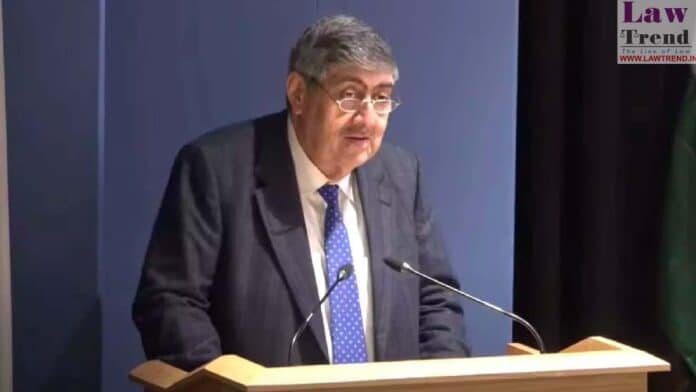Virtual court hearings have increased efficiency and it is necessary to utilise this system for which a vast infrastructure has been created and even large amount of money sanctioned by the government, Supreme Court Judge Justice Sanjay Kishan Kaul said on Sunday.
Speaking at the concluding session of the four-day long Delhi Arbitration Weekend’, Justice Kaul said when the world was hit by the COVID-19 pandemic, the international arbitration community shifted to the virtual system and gradually virtual or hybrid hearings will become a norm and physical hearings will become an exception.
“To keep the wheels of justice moving as much as possible, we introduced virtual hearing in courts and India being a developing country, faced infrastructural and connectivity issues but it did not take long for the stakeholders to find a way of operating efficiently,” he said.

Justice Kaul was speaking on the topic Arbitration Vision 2030: What the Future Beholds?’
“I would say the virtual system has actually increased the efficiency level and hence even today, I operate on a hybrid level where I permit lawyers to appear through video conferencing,” he said.
He added that virtual system has reduced cost of travelling and allows lawyers to prepare their matters in a short time.
“This is something the Chief Justice of India also on recent occasions emphasised that having created this vast infrastructure it is necessary to utilise it to the best possible way considering that the government has also sanctioned a large amount for further use of technology to strengthen the judicial system,” Justice Kaul said.
He said the virtual system has done away with the need of unnecessarily spending money on travelling to different parts of the world for conferences or hearings and it has also become easier for arbitrators and practitioners to find a suitable date of hearing.
Some arbitration institutions have explicitly come out with virtual arbitration rules, he said, adding arbitrators and practitioners will be required to know the basics of technology with an attention to cyber security and other issues.
He further said he does not consider virtual hearing to be a fool proof system and the experience has shown that they come with their own set of problems.
Justice Kaul said parties can also insist on physical or hybrid hearing to use it as a means to delay the arbitration process and the arbitral tribunal has to take due steps to balance the process and not delay the process.
Regarding Artificial Intelligence tools like ChatGPT, he said people can get answers to any query possible and to explore the use of AI, the Supreme Court of India has formed an AI committee which is looking into various aspects.
However, AI tools must be used very carefully as they come with risks of due process rights and public policy violations, he said.
He also said arbitration constantly reflects the need of the parties in dispute and factors which have helped India to move towards an arbitration-friendly regime include institutionalising the arbitration system.
Justice Kaul said the mediation bill, which will see light of the day possibly this year, is also geared towards this institutionalisation.
“There is strict adherence to the principles of non-interference with the arbitral awards by courts. Indian courts have shifted towards this,” he said.
He added that parties must learn to accept awards and “unfortunately the public sector more so require this and there is no need to carry a battle through two or three tier scrutiny just to complete the formality. I think that is something I am sure the Law Minister will look into it”.
Union Law Minister Kiren Rijiju was the chief guest at the concluding session.
Justice Kaul said future developments for arbitration in India are in tandem with those taking place globally and added, “we are at an exciting stage domestically and globally with respect to arbitrations”.







